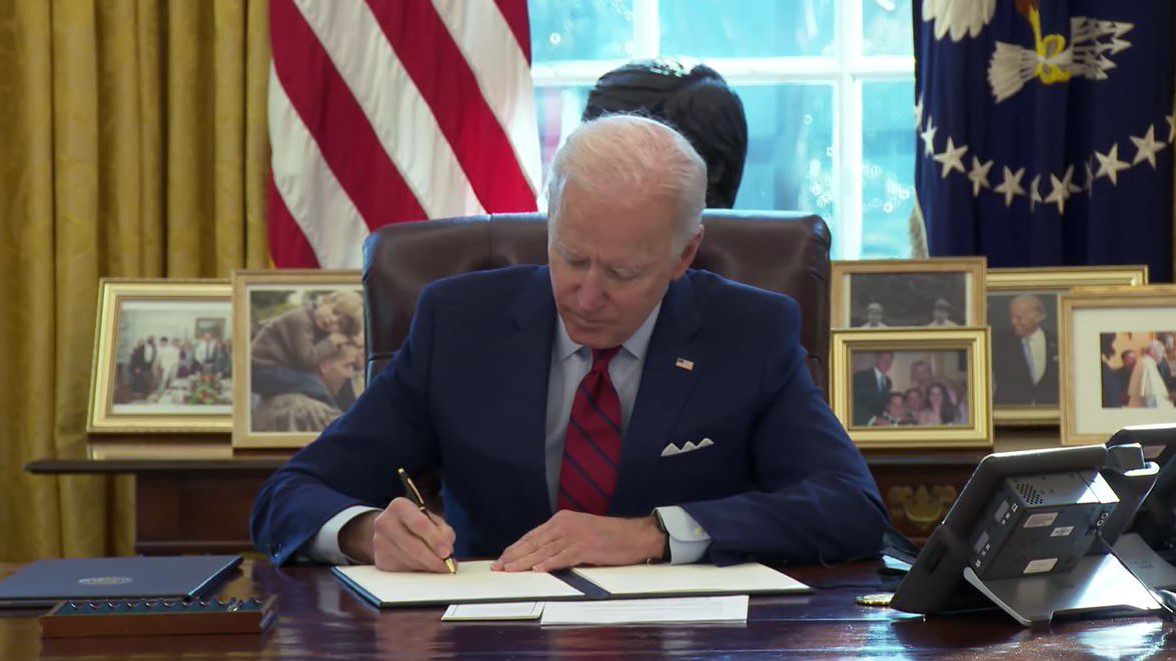
Newly-inaugurated President Joe Biden has reversed several policy decisions of former President Trump that had curtailed the sexual and reproductive rights of women and girls.
On January 28 (within ten days of taking office, mind you), President Biden issued a presidential memorandum declaring that it is the policy of his Administration “to support women’s and girls’ sexual and reproductive health and rights in the United States, as well as globally.”
“Women should have access to the health care they need. For too many women today, both at home and abroad, that is not possible. Undue restrictions on the use of Federal funds have made it harder for women to obtain necessary health care.”
The memorandum notes that “women should have access to the health care they need. For too many women today, both at home and abroad, that is not possible. Undue restrictions on the use of Federal funds have made it harder for women to obtain necessary health care.”
The memorandum goes on to instruct various cabinet departments to “take action to ensure that women at home and around the world are able to access complete medical information, including with respect to their reproductive health.” Of particular importance to U.S. youth and adults, the memorandum instructs the U.S. Department of Health and Human Services to review, and possibly rescind or revise, regulations governing the Title X Family Planning program that impose undue restrictions on the use of Federal funds or women’s access to complete medical information. This Presidential direction essentially puts into motion a reversal of the Trump Administration’s “Title X gag rule” that prohibits recipients of Title X funds from counseling on abortion or making patient referrals to abortion services. Such prohibitions are inconsistent with the best practice of advising people of their full options when pregnant and supporting their full exercise of any option they choose. Healthy Teen Network supports informing adolescents and young adults of their full options. See our position statement below on the Title X family planning program.
The January 28 presidential memorandum is only the first of many policy actions we can anticipate the Biden Administration to take to advance sexual and reproductive health, rights, and justice. How do we know this? For starters, the President said he would when he was a candidate for the presidency. Among his commitments, candidate Biden announced that, if elected, the Biden Administration would support repealing the Hyde Amendment (which prohibits the use of federal funds for paying for abortion) and would support inclusion of contraception and abortion as eligible services within any public insurance option that could be added to the Affordable Care Act network of health insurance providers.
How else might we know what’s to come from the Biden Administration?
Look no further than the Blueprint for Sexual and Reproductive Health, Rights, and Justice, a comprehensive policy agenda to advance sexual and reproductive health, rights, and justice for people in the U.S. and around the world. The full Blueprint, endorsed by over 90 organizations including Healthy Teen Network, is in the hands of Biden Administration officials. As is First Priorities, a detailed punch list of executive and agency actions, based on the Blueprint, for the opening days of the Administration.
“While there is certainly no guarantee that the Biden Administration will implement all of the recommendations contained with the Blueprint, we can safely assume the Administration will adopt some of them… and that sexual and reproductive justice organizations, Healthy Teen Network among them, will press the Administration to carry out the remainder.
While there is certainly no guarantee that the Biden Administration will implement all of the recommendations contained with the Blueprint, we can safely assume the Administration will adopt some of them… and that sexual and reproductive justice organizations, Healthy Teen Network among them, will press the Administration to carry out the remainder.
Not to be overlooked, of course, is the legislative branch of government. 2021 commenced with a new U.S. Congress, the 117th, being sworn into office. As happens any national election cycle, some Members of Congress retire and others are defeated in their campaigns; new Members replace those outgoing. This year, the U.S. House of Representatives remains with a Democratic majority. And the Senate has a 50-50 Democratic-Republican split, with Vice President Kamala Harris available to break tie votes, assumably to favor the Democrats.
What this means for sexual and reproductive justice legislatively is 1) lessened threats against sexual and reproductive healthcare rights making their way through either chamber of Congress and 2) greater opportunities for Members of Congress and advocates to advance legislation affirming or expanding such rights. But let’s not get overly optimistic. With a Senate evenly divided, it is unlikely that we will see any policies enacted that are big and bold.
Of particular importance to Healthy Teen Network members, we can assume that appropriations for the Teen Pregnancy Prevention Program (TPPP) are not under threat this Congress, and could even be increased. But don’t count on a huge infusion of funds to that program or others of importance to youth and families, given the general mood in Congress to curb the national deficit and debt (COVID-19 expenditures notwithstanding).
We can also expect to see reintroductions of proactive legislation of long-standing interest to youth sexual and reproductive health advocates, including the Real Education for Healthy Youth Act. If enacted, REHYA would authorize funds to elementary, secondary, and higher education systems to provide comprehensive sexual health education to their student populations.
Please stay attuned to Healthy Teen Network’s weekly Egram for national public policy news to know and actions take. Because, if there’s nothing else more forecast-able, it’s that the landscape for sexual and reproductive health, rights, and justice has shifted, and our members and friends will want to be aware and engaged.
Bob Reeg, MPA, CVA, is a Program Development and Public Policy Consultant with Healthy Teen Network. With 30 years’ experience in public policy advocacy, he is always ready to give the rundown on what’s happening—or what’s not—on Capitol Hill. Read more about Bob.












